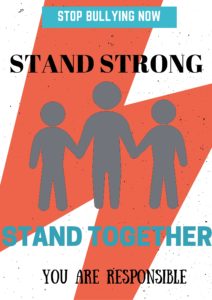Scanning the online edition of my native Minneapolis’ Star Tribune, an article about the pedophilia rampant in the archdiocese of Minneapolis and St. Paul caught my attention. A former Catholic and member of the Twin Cities archdiocese, I was thoroughly disgusted. Among my many criticisms of the Catholic Church is this archaic insistence on exclusively [outwardly] heterosexual, male, unmarried and chaste clergymen. Who does that leave to take the vows of priesthood? Ideally, benevolent men who have never been interested in physical relations with anyone, male or female, and who have no desire to marry or to father (or adopt) children. While there are some priests in the Church who are genuinely devoted to both their faith and their congregations, these unreasonable restrictions on who may enter the priesthood—as well as how those within the clergy are required to conduct themselves—has opened the door to gross sexual misconduct and the exploitation of children whose parents have entrusted their care to the clergy. And generally, the Church does not respond to reports of either consensual sexual misconduct with a member of the congregation or allegations of child molestation because, after all, men of God would never behave in a manner so inconsistent with Church doctrine. It’s all pushed under the rug.
With the patriarchal values that keep women out of the priesthood, as well as absurd notions of sexual purity that are meant to keep men of the cloth chaste and unmarried, it’s really no wonder that molestation within Catholicism has been effectively institutionalized since the Church’s founding. Akin to expressions like ‘everyone has a funny uncle’, dark humor surrounding the worst-kept secret in Catholicism often jabs at the pedophiliac undertones of the priest/altar boy relationship—and the fact that Catholics refer to their priests as “Father” adds a particularly nauseating dash of incest. So what, then, is the religiously devout family supposed to do? Protect the children from potentially harmful encounters by keeping them firmly seated in the pew during Mass? Stop attending church entirely? Or continue to trust in the goodness of the majority of the clergy, sending the kids up to the altar or into Confession like any good Catholic parent would? Perhaps the answer lies in altering Church doctrine itself—but good luck with that.
Unfortunately, there is still a myth that “family values” are synonymous with religious affiliation. Good parents—in their efforts to raise good, morally upright offspring—take their children to church on Sundays. It’s just was “normal” families do. Jack Lule, in his essay News as Myth, cites historian of religion Mecria Eliade as saying, “Religious life, and all the creations that spring from it, are dominated by what one may call ‘the tendency toward an archetype.’” Families taking their children to church and entrusting their care and spritiual educaiton to the clergy may be doing so in an effort to fit the “good Christian family” mold, but are not necessarily leaving their kids in a safe space.
Further to the notion that churchgoers = good parents is the myth that the Church itself is infallible, and that everyone within it is morally superior to those poor suckers who have yet to be saved. The handful of “bad apple” priests are therefore aberrations—the problem is not with the system, clearly, but with troubled individuals. Because it’s totally normal for young, college-aged guys to swear off masturbation and sex for life, never consider marriage or children, and be completely fulfilled in their relationships with Christ. Or maybe it can be a struggle that leads to inappropriately expressed frustrations—possibly to the point of sexual misconduct or child molestation. Not saying that it’s always the case, but one can see where the constraints the Catholic Church puts on its clergy members are less than ideal, or even reasonable. But the Church can do no wrong, so why question it?


Recent Comments